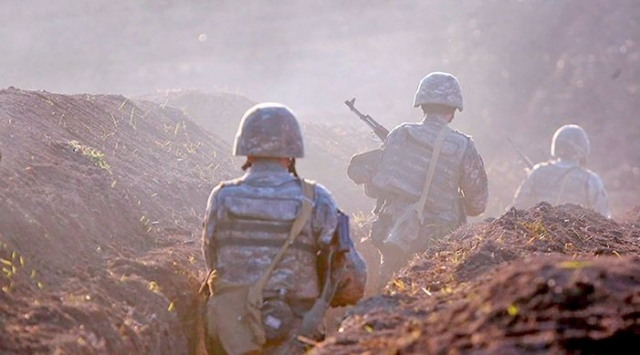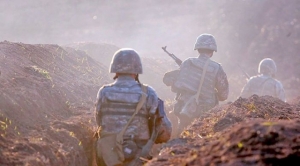Georgia & the Nagorno-Karabakh Conflict
Armenia and Azerbaijan clash along the contact line in Nagorno-Karabakh. As a neighbor to both states and having the least geopolitical interest in the conflict, Georgia could play a positive role in alleviating the mutual distrust between Baku and Yerevan and limiting geopolitical threats to regional security, namely transit routes.
The Georgian PM, Giorgi Gakharia announced the initiative or rather stated openness to host potential bilateral Armenia-Azerbaijani talks in Tbilisi. The timing is interesting. World leaders are notoriously absent from diplomatic activity around the renewed clashes. Russia, Armenia’s ally and a usual host to Baku-Yerevan talks, so far has been hesitant to minimize the fighting. Turkey has been supporting Azerbaijan, while Iran’s relations with Armenia causes concerns in Baku. Western leaders too seem mostly pre-occupied with the internal issues (whether it is the US elections, internal troubles in the EU, protests in Belarus etc.).
Thus surprisingly there is some room for Georgia’s diplomatic activity. It should be also noted that Georgia’s geopolitical weight is not as large as is usually necessary for a country to pursue a strong mediating role. Georgians also remember how even a large state such as Iran was unable to pursue a successful mediation work between Armenia and Azerbaijan in the 1990s. Even Russia is often unable to strike a balance between the two sides (it often causes criticism from Baku). However, the biggest obstacle is the mutual distrust between Baku and Yerevan. These realities limit chances for a potentially successful mediation headed by the Georgian side.
Georgia’s position towards the conflict in Nagorno-Karabakh is also interesting. Geographically the quickest way for Armenia and Azerbaijan to receive armaments from abroad goes through the Georgian territory, which often puts the official Tbilisi in an uncomfortable position. Therefore, Tbilisi’s reaction to the conflict has been quite straightforward: avoiding being pulled into the Armenia-Azerbaijan clashes and acrimonious diplomatic exchanges and holding direct diplomatic contact with both Baku and Yerevan with the aim to facilitate the minimization of the effects of the fighting.
As one could expect in a region as unstable as the South Caucasus where low-level fighting could explode into a regional-level military confrontation, the Karabakh conflict has worried Tbilisi ever since the beginning of the Armenia-Azerbaijan conflict and especially during this year’s July fighting. First, the Tovuz Region of Azerbaijan borders on a part of Georgia’s south-east border; second, large infrastructure (pipelines, a major railway, roads) runs through the region and connects the Caspian Sea to the Black Sea region. Georgia benefits financially as a transit state and quite naturally is interested in a quick de-escalation of Armenia-Azerbaijan tensions.
Tbilisi carefully abstains from joining or supporting any confronting side. Even internally Georgia’s major political parties avoid making radical statements, which are mostly limited to general necessity of upholding the peace in the South Caucasus. However, this does not mean that the responsible institutions within the government are not studying closely the unfolding changes in Armenia-Azerbaijan relations and how this could impact Georgia’s strategic position.
In a way, there is an emerging room for Tbilisi’s diplomatic activity towards its two neighbors. Various limits would hamper any considerable success from the Georgian side, but some progress could be achieved. The country is primarily interested in alleviating the potential damages to the security of the South Caucasus and especially the transit routes it depends financially so much on.
By Emil Avdaliani
Emil Avdaliani, non-resident fellow at the Georgian think tank, Geocase, specializes on wider Eurasia with a particular focus on South Caucasus and Russia, relations with China and the US.












